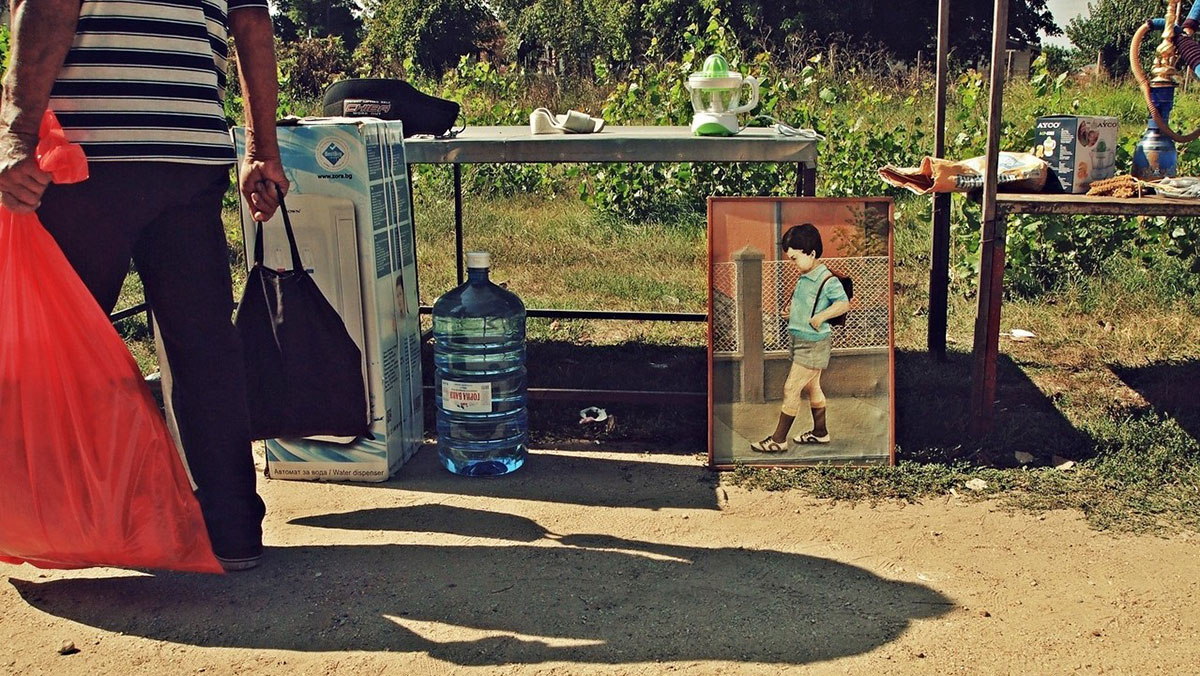
Does today feel like a holiday? Some new people are arriving, all dressed up in their best clothes. All their relatives are around them, it’s been a while since the families saw such important persons, the most important in the country.
First-graders are coming to change the world. No one else will do it, everyone has already tried. The generation that will rule the world in the 2050s and 2060s, that’s how we speak of the children who can barely tie their shoelaces.
“What do you expect from school?” – a reporter inquired of one small man, going somewhere, he’s not exactly sure where because he’s still being led by the hand.
“I don’t expect anything from school” – says the man who really doesn’t expect anything, nor is he ready to answer stupid questions. But he is able to answer them intelligently. How does he know what school is and what happens there, he doesn’t expect anything, why should he? He’s a bit scared, he knows why, he’s a bit happy, he doesn’t know why. It is not the same being told what awaits you and when it actually happens. He’ll figure it out, there is ample time.
The country and its cities do not have billboards and triumphal arches on the streets. And they had to get ready for the biggest day of the year. Look who’s coming!? Tens of thousands of the smallest, youngest and most curious. They are already smarter than anyone trying to teach them. A generation with previous knowledge, no one knows where they got it from. But they are still too weak to resist the world trying to use them as material to be processed and polished. The teachers will arrange them in benches with their peers, and they will start from A and from 1. Children who are now leaving their games and starting serious work.
On the border between home and school is the path that the first-graders will walk cautiously, chaperoned every day until they get used to it and become more capable and determined. And then one day they will be released into the world.
Will they be released when they break away on their own? In Serbia, houses, paths to school, and schools are dangerous places. Every step is dangerous. First-graders will walk those steps, those people who are so irresistible and who we worry about so much!
Let those reporters on duty around schools today waiting to take pictures of our most important and most beautiful people, be careful what they ask: Did you make a new friend today? Is your teacher pretty? Are you looking forward to going there again tomorrow? What is your best friend’s name? Who brought you to school, mom or dad? Come on, recite something for us.
My grandfather brought me. I didn’t make any friends yet, we are just getting to know each other. My teacher is a man. I’m not looking forward to school, but I have to go, it’s my duty. My best friend’s name is Mare, and he’s a rabbit. I know some lyrics, but I don’t have time now.
The adults are not prepared for the new students at all. The Minister of Education is struggling with her old memories and the party’s ministerial quota. Lost in the past, she cannot see what these children need. Today, they go into a world which much smaller than their imagination, with a 12 kilo backpack, full of bad textbooks.
The ruler denies that Jovanjica happened and does not worry about the dismissed policemen. “I don’t use drugs, I have no money, dismissals and replacements are a matter for the Ministry of Interior. We are building new stadiums, have you seen the one in Leskovac? We will play against Bulgaria there, life goes on. We will also build new schools and repair collapsed ones, each school will have a toilet, we just need to finish the stadiums first, is that a problem?”
For him and his entourage and subjects, the tragedy in Ribnikar school is a done deal. It happened, so what? The system did not stop working. The police are coming to schools today.
The parents of the first-graders celebrate today as the first test of their children’s early maturity and their own courage in turning their children over to the state. Today is for joy, all other days are for anxiety. Everyone who has a child in school knows that.
Please forgive my emotions, but this article is dedicated to all the first-graders in Serbia, including my youngest granddaughter, Nadja, who is becoming a student today. I said at the beginning that these are the most extraordinary, unequaled people we have. We have an obligation to stand between them and evil at all times.
Just let them be healthy and well.
Translated by Marijana Simic
Peščanik.net, 07.09.2023.
- Biografija
- Latest Posts
Latest posts by Ljubodrag Stojadinović (see all)
- Odvratna priča - 26/04/2024
- Biro za izgubljene - 19/04/2024
- Jedan dan sa Dadom Vujasinović - 12/04/2024


